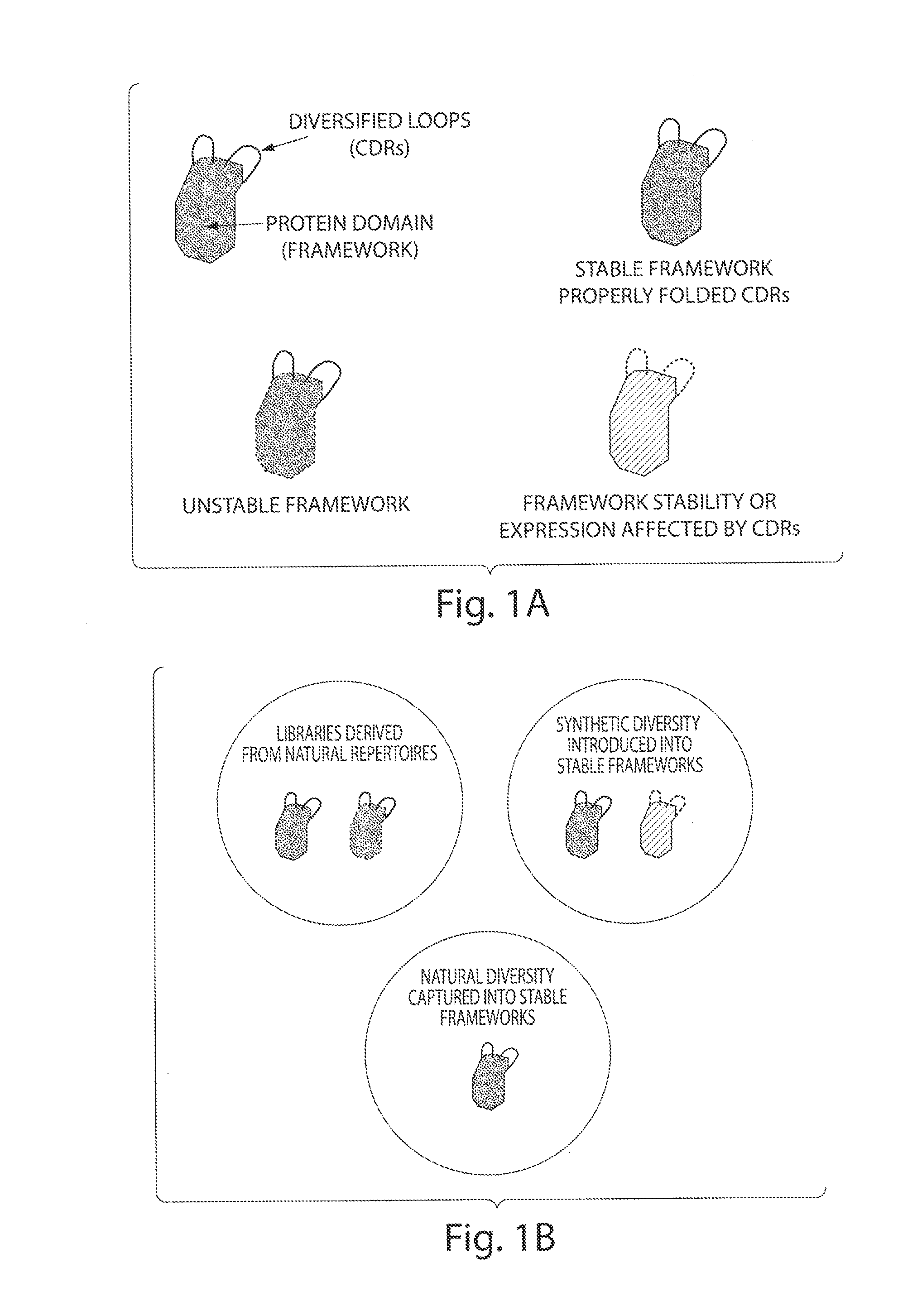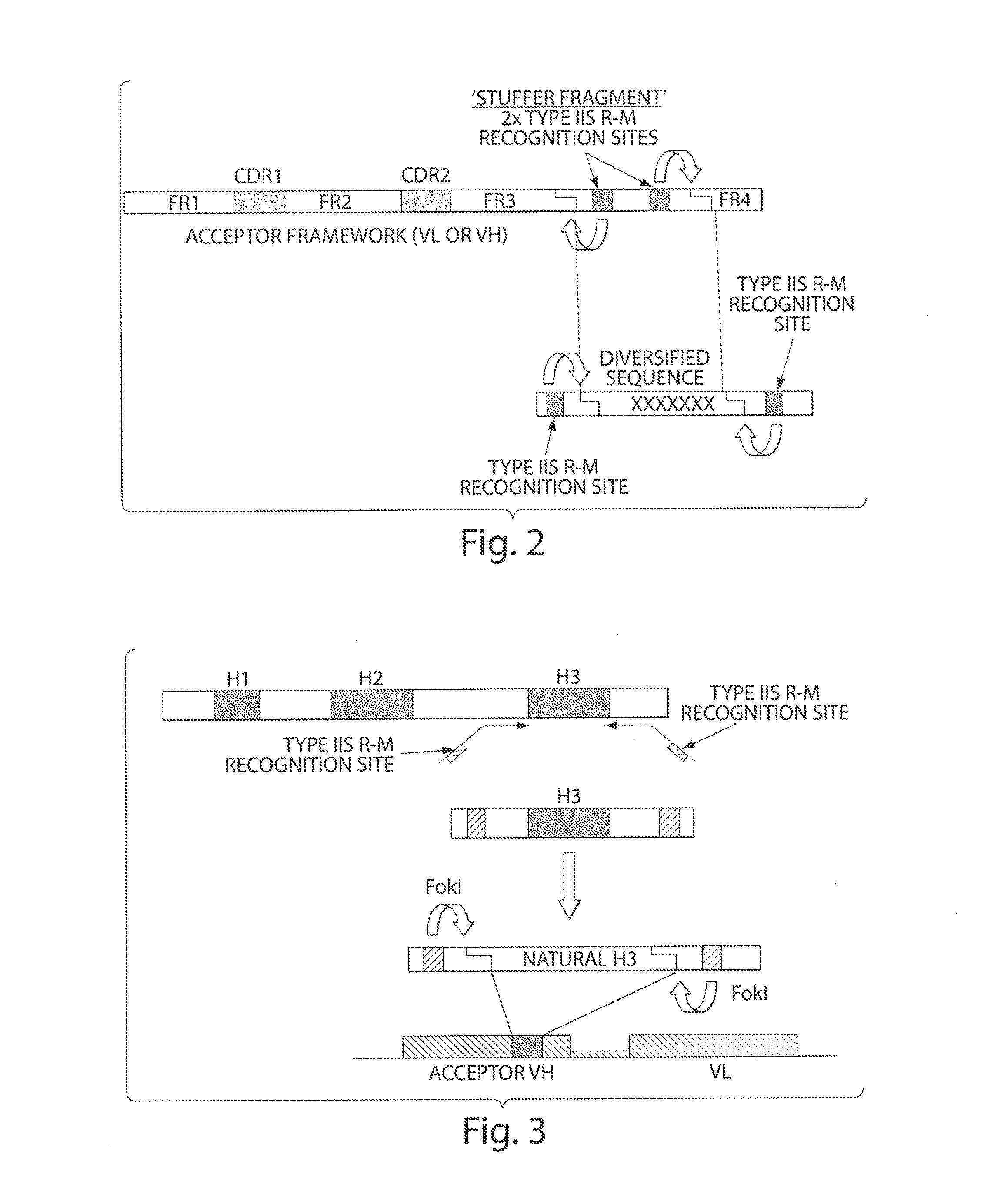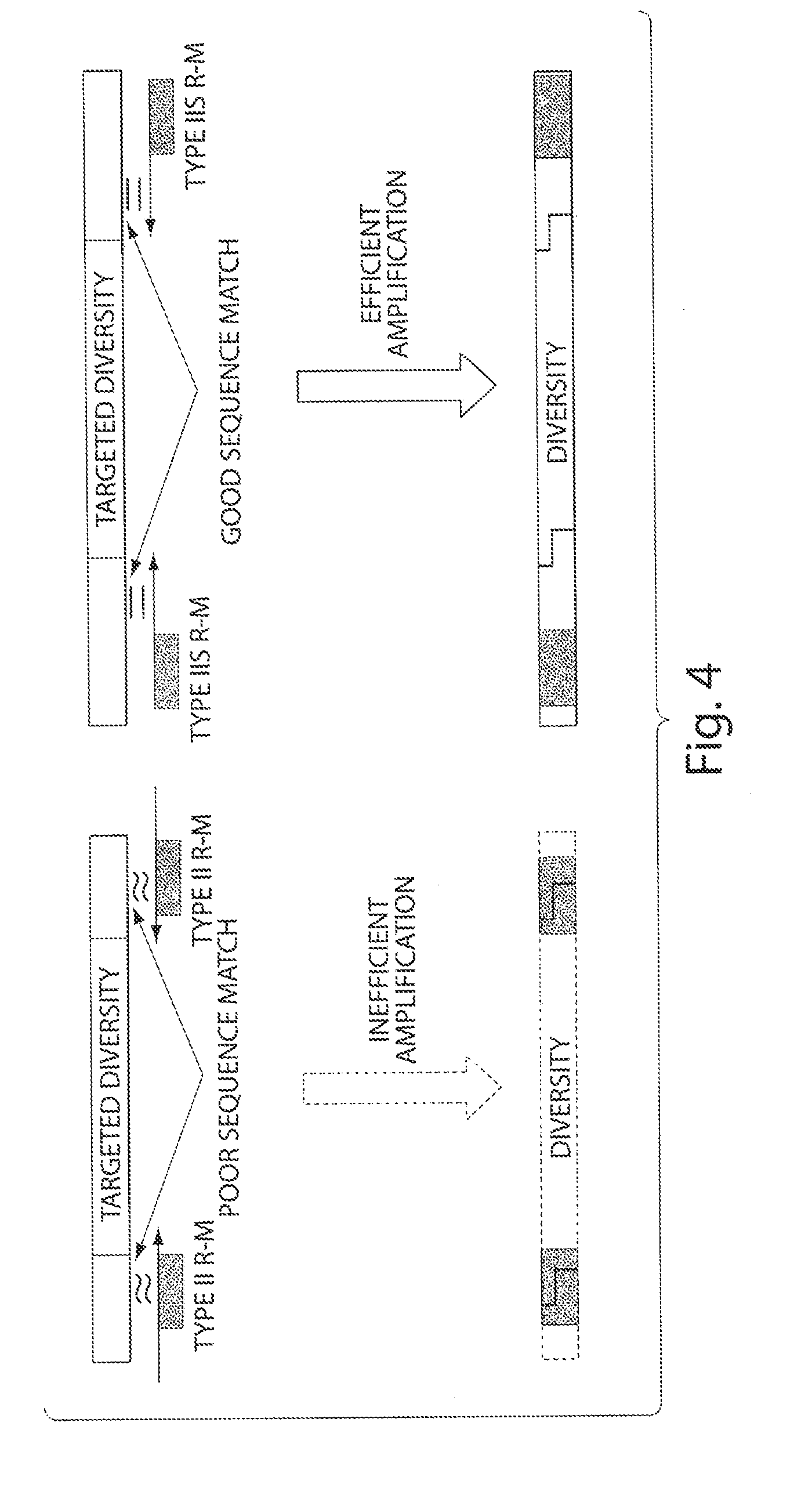Synthetic polypeptide libraries and methods for generating naturally diversified polypeptide variants
a polypeptide and library technology, applied in the field of synthetic polypeptide libraries and methods, can solve the problems of not being well suited for human therapy and derived antibodies from these libraries, and achieve the effects of reducing the number of functional antibodies in the library, and reducing the number of errors
- Summary
- Abstract
- Description
- Claims
- Application Information
AI Technical Summary
Benefits of technology
Problems solved by technology
Method used
Image
Examples
example 1
Cloning of Immunoglobulin Variable Germline Genes
[0265]Seven human heavy chain variable germline genes (VH1-2, VH1-69, VH1-18, VH3-30, VH3-48, VH3-23, VH5-51), five human kappa light chain variable germline genes (VK1-33, VK1-39, VK3-11, VK3-15, VK3-20) and two human lambda light chain variable germline genes (VL1-44, VL1-51) were selected to construct the libraries (Lefranc, M.-P. et al., 1999 Nucleic Acids Research, 27, 209-212). These genes were selected because they are often used in human expressed antibody repertoires and the frameworks they encode show favorable stability and expression profiles as individual domains or in the context of a VH / VL pair (Ewert S et al., J Mol Biol. 2003 Jan. 17; 325(3):531-53). Two sets of specific primers were used to amplify these genes from human genomic DNA by nested PCR. This approach was necessary as the 5′ sequences of germline genes of the same family are identical or very similar. For each gene, a first pair of primers, called genomic l...
example 2
Generation of Acceptor Frameworks
[0268]The sequences of the selected germline genes were analyzed for the presence of Type IIs restriction sites. No BsmBI site was present in the selected antibody variable germline genes. Two BsmBI sites were found in the backbone of pNDS1, the phagemid vector in which the Acceptor Framework would be cloned. These two sites were removed by site-directed mutagenesis so that unique BsmBI sites could be introduced into the stuffer DNA sequences of the Acceptor Frameworks. Each germline gene was amplified by multiple nested PCR in order to add a stuffer DNA sequence at the 3′ end of the FR3 sequence followed by a sequence encoding FR4 which is specific for each corresponding variable segment (VH, Vk, Vλ). The amino acid sequence of VH FR4 corresponds to the FR4 region encoded by the germline J genes JH1, JH3, JH4 and JH5. The amino acid sequence of VK FR4 corresponds to the FR4 region encoded by the germline J genes JK1. The amino acid sequence of Vλ FR...
example 3
Generation of Phagemid Acceptor Vectors Containing an Invariant Variable Domain
[0271]The phagemid vector pNDS1 used for the expression of scFv was first modified to remove two BsmBI sites. A VH3-23 domain containing a defined CDR3 sequence was cloned into the modified pNDS1 using the SfiI and XhoI restriction sites to obtain the phagemid vector pNDS_VHdummy. This domain contained a BsmBI site in the FR4 region, which was corrected by silent site directed mutagenesis. In parallel, a VK1-39 domain containing a defined CDR3 sequence was then cloned into the modified pNDS1 using the SalI and NotI restriction sites to obtain the phagemid vector pNDS_VKdummy (FIG. 9). The 8 VH Acceptor Frameworks were cloned into pNDS_VKdummy using the SalI and NotI restrictions sites. The 12 VL Acceptor Frameworks were cloned into pNDS_VHdummy using the SfiI and XhoI restrictions sites. The resulting 20 pNDS phagemid vectors that are listed below could at this stage be used for cloning of diversified CDR...
PUM
 Login to View More
Login to View More Abstract
Description
Claims
Application Information
 Login to View More
Login to View More - R&D
- Intellectual Property
- Life Sciences
- Materials
- Tech Scout
- Unparalleled Data Quality
- Higher Quality Content
- 60% Fewer Hallucinations
Browse by: Latest US Patents, China's latest patents, Technical Efficacy Thesaurus, Application Domain, Technology Topic, Popular Technical Reports.
© 2025 PatSnap. All rights reserved.Legal|Privacy policy|Modern Slavery Act Transparency Statement|Sitemap|About US| Contact US: help@patsnap.com



